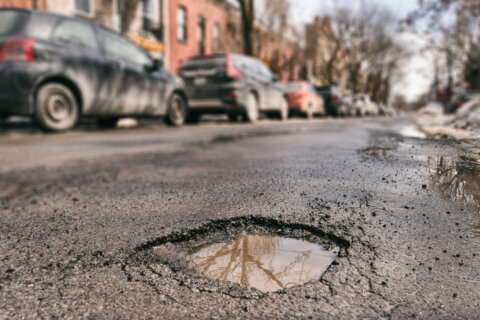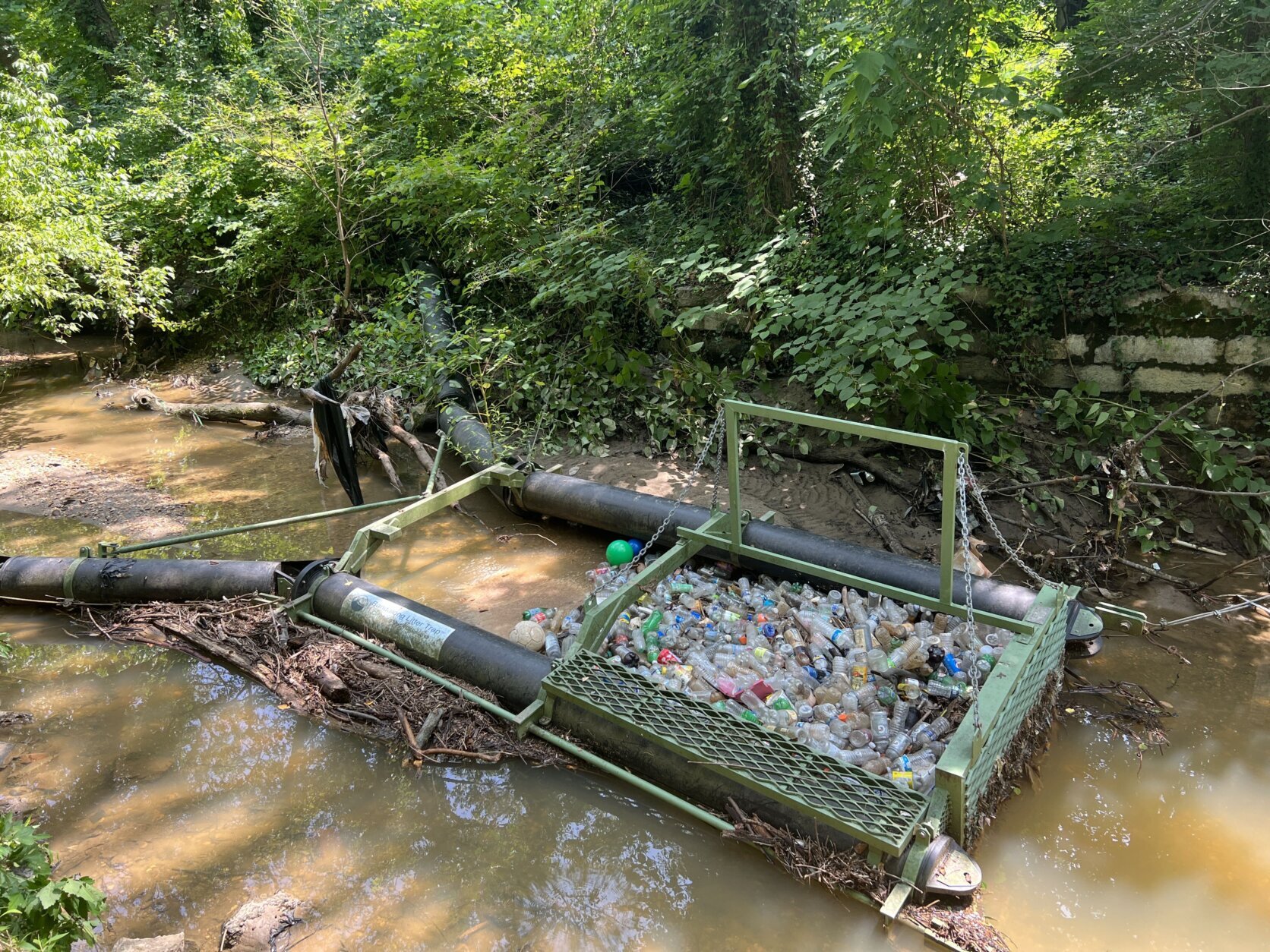
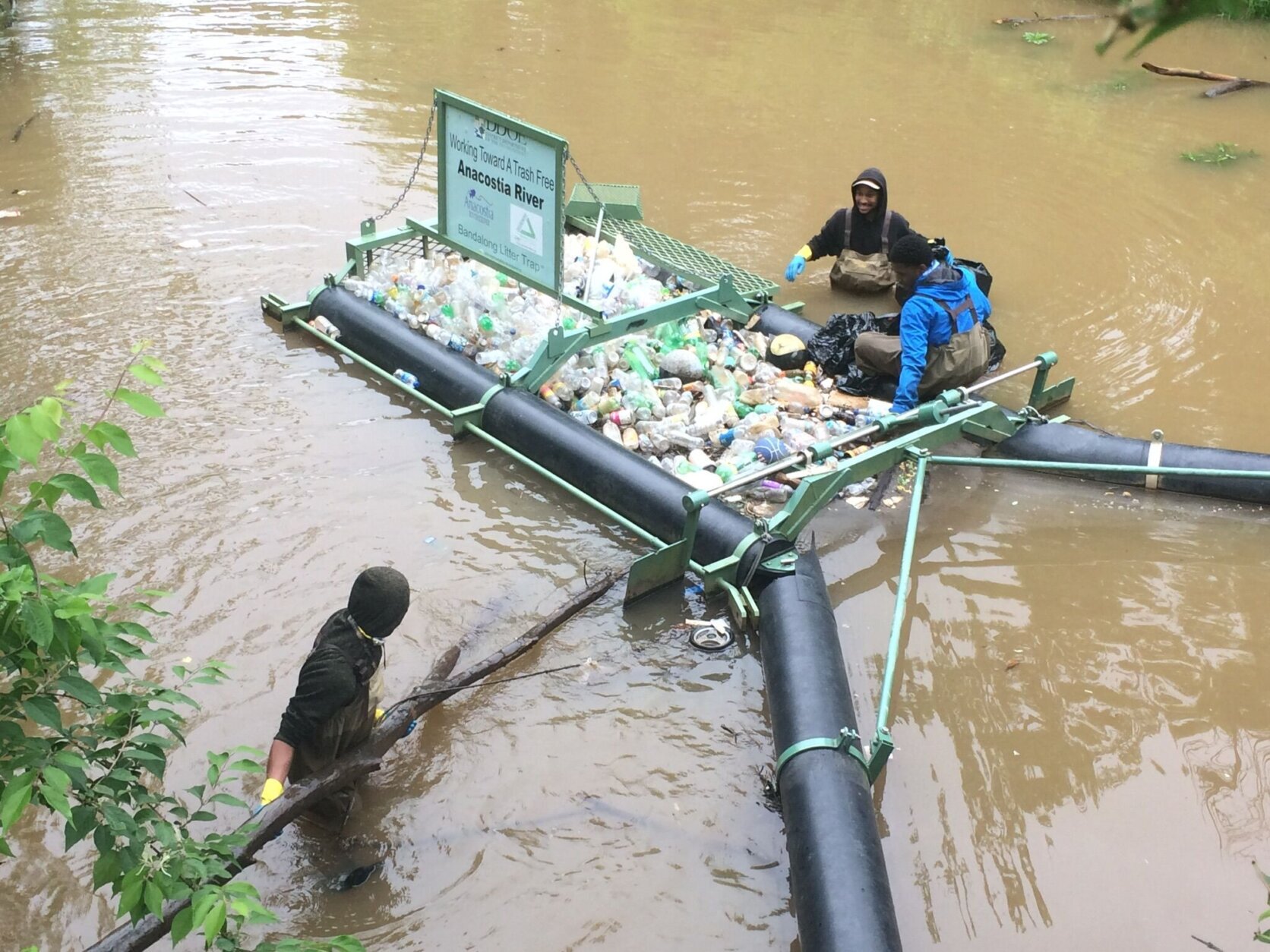
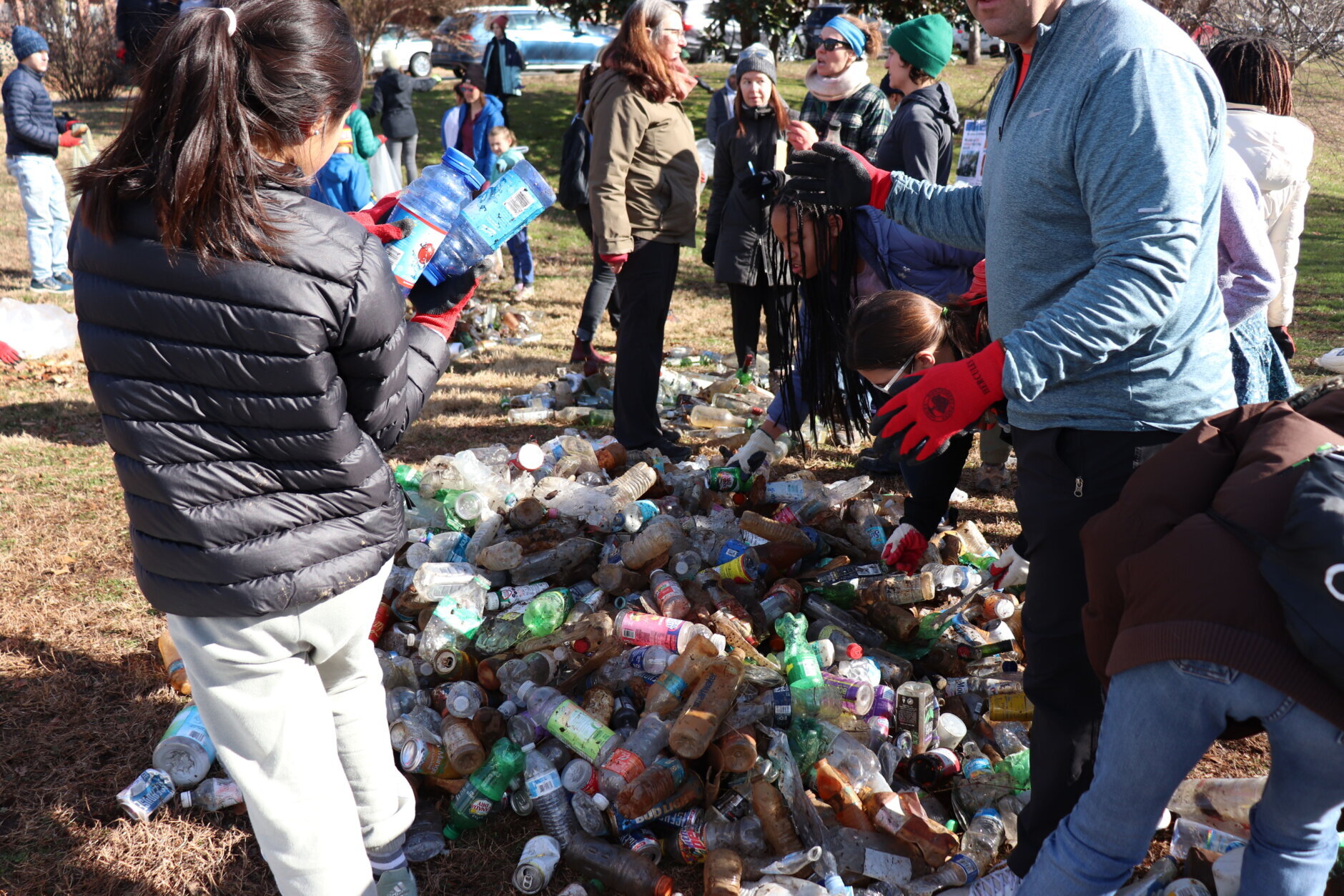
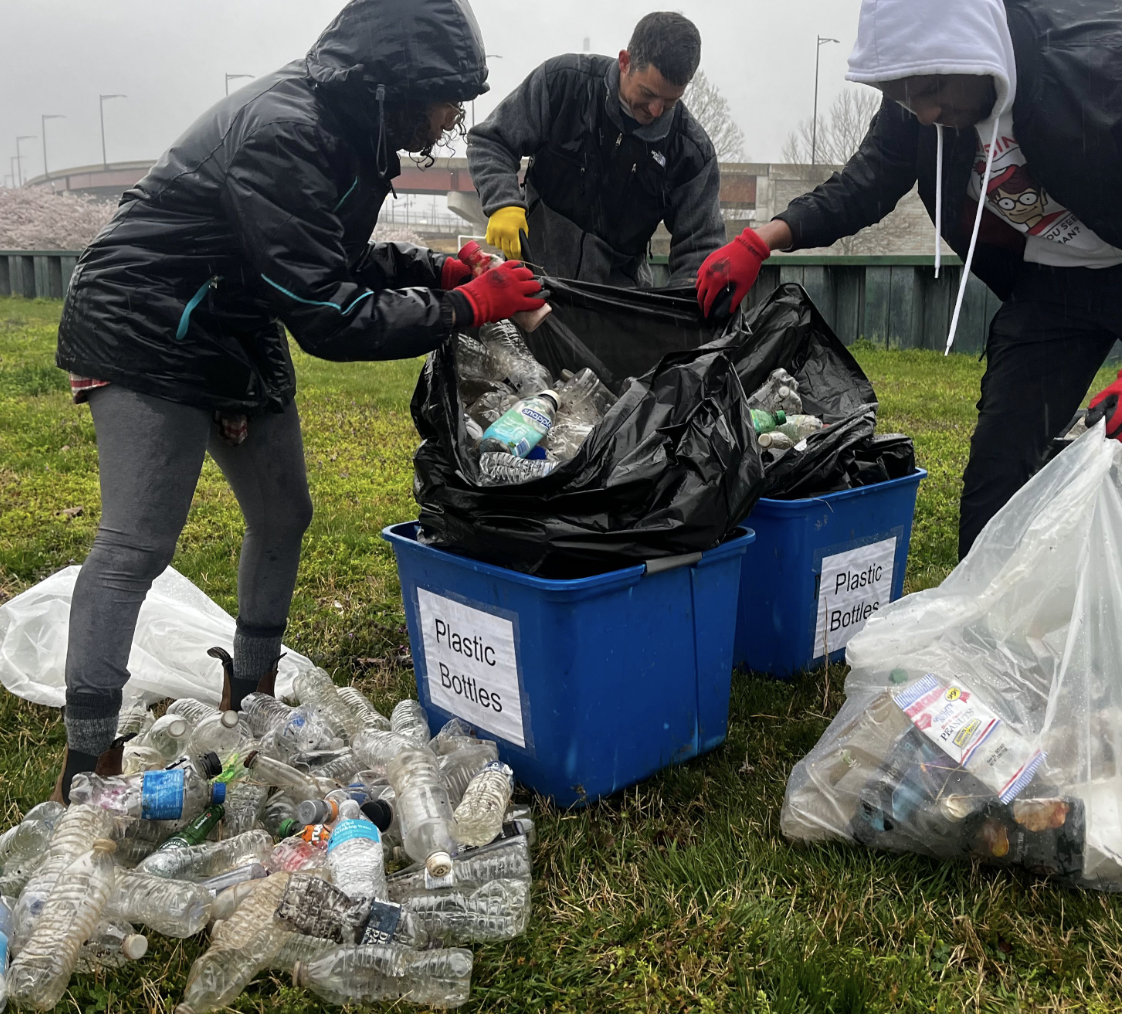
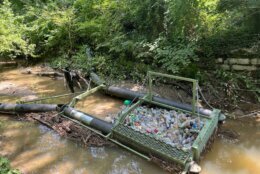
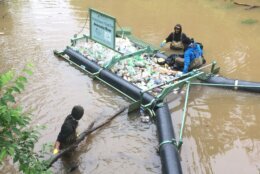
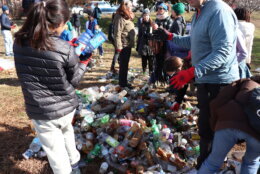
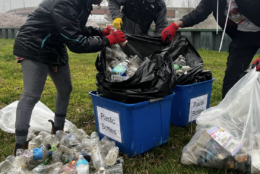
When the waste stream ends in the Anacostia River, the result can be what looks like flotillas of plastic bottles dotting the river and its shoreline. A D.C.-area coalition of environmental groups wants to stop the flow of trash.
The Sierra Club’s D.C. Chapter, along with groups such as the Anacostia Riverkeeper, Ward 8 Woods and the Friends of Kenilworth Aquatic Gardens formed 3RC for DC. The groups are working to pass a deposit-return law, or “bottle bill,” to keep plastic bottles and other containers out of area waterways.
The Sierra Club and the 3RC for DC coalition have generated an electronic petition in an effort to move the bill forward.
Quinn Molner, operations director for Anacostia Riverkeeper, said more than half of the trash floating in the Anacostia River is made up of plastic bottles.
“Since 2012, we’ve cleaned up over 15,000 pounds of plastic bottles,” Molner said.
So far this year, 1,000 pounds of the lightweight trash has been collected.
“When you talk about 1,000 pounds — just this year — of empty plastic bottles, the volume of that is immense,” Molner said.
Molner said the deposit-return law being proposed would cost consumers around a 10-cent fee for the smallest of bottles and more for larger containers.
Consumers can take their “empties” back to the grocery store or redemption center, and “upon returning those beverage containers, you get that money back,” she said.
The idea is to create an incentive for people to avoid tossing a used bottle and keep it from ending up as trash in the community.
Molner pointed to D.C.’s bag fee, which was designed to help get plastic bags out of the region’s waters.
“Plastic bags used to be the number one (category of) trash floating in the Anacostia River,” Molner said.
Now, they’re at the bottom of the heap of the more than 20 categories of trash retrieved from the waste stream.


